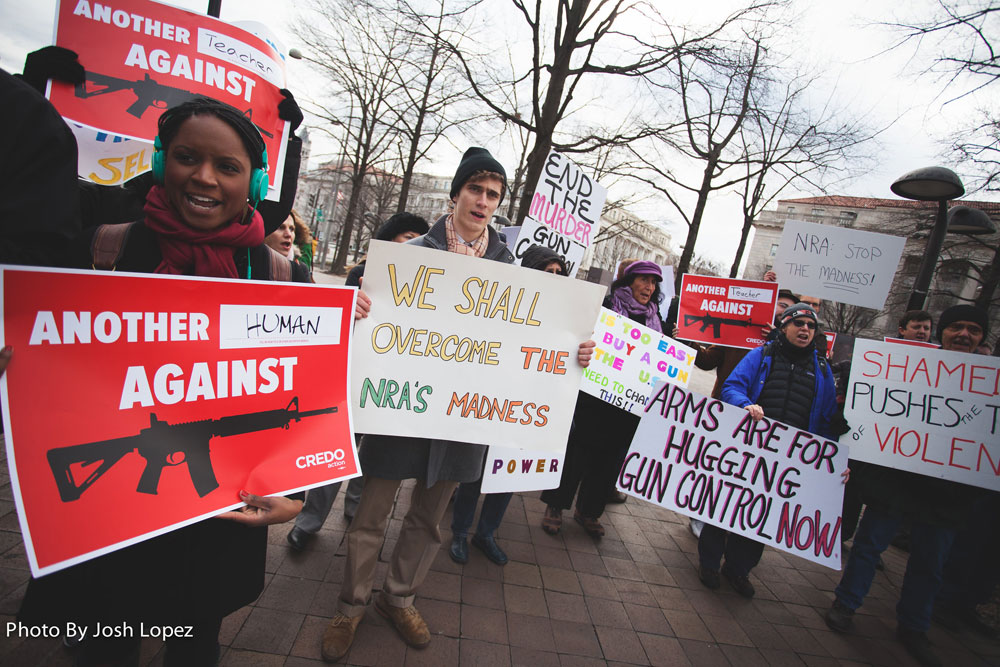
November 25, 2020; The Trace and the Washington Post
The Nonprofit Quarterly has an archive of the soap opera that is the National Rifle Association (NRA). Charges have been made, which the NRA denied for years, that the executives were guilty of malfeasance and misspending. Now, the Washington Post has obtained a new tax filing that says the NRA, in an about-face, “became aware during 2019 of a significant diversion of its assets.”
The filing states that longtime NRA CEO Wayne LaPierre and five former executives received “excess benefits,” the IRS term to indicate nonprofit employees were taking financial advantage of their organization.
The catalyst for the sudden revelation may be New York State Attorney General Letitia James. In August, she announced a lawsuit, seeking to dissolve the NRA “because of their diversion of millions of dollars away from the charitable mission of the organization for personal use by senior leadership, awarding contracts to the financial gain of close associates and family, and appearing to dole out lucrative no-show contracts to former employees in order to buy their silence and continued loyalty.” James is sharing her findings with the IRS, which means the NRA is likely using the tax filing in an attempt to halt further investigation.
James’s lawsuit charges that LaPierre sent personal expenses through Ackerman McQueen, the NRA’s former public relations and advertising firm. The new tax filing says the organization’s review of alleged fund abuse is ongoing, adding to its multimillion-dollar legal bills—as high as $38.5 million in 2019. The biggest expense goes to the Dallas law firm headed by William Brewer III, who was hired to face down the legal challenges coming from James. (Brewer is married to Skye McQueen Brewer, daughter of Angus McQueen, who led Ackerman McQueen over 30 years.) Brewer didn’t stop the attorney general’s subsequent lawsuit, and he’s won only one suit he has filed in retaliation.
Former executives believe that Brewer is protecting LaPierre rather than concentrating on the NRA. NRA members complained on November 18, 2020, that Brewer’s firm should not represent the NRA and LaPierre. LaPierre then notified the court in Texas that he hired a separate lawyer, P. Kent Correll. It turns out Correll worked with Brewer 15 years ago.
In 2018, Brewer had the NRA’s audit committee begin to retroactively approve financial dealings that had benefited insiders. Sean Delany, a lawyer who led the charities bureau of the Attorney General’s Office from 1996 to 1997, said it’s striking that the firm was paid “eye-popping” fees to rectify the very compliance issues that are the subject of the complaint.
Sign up for our free newsletters
Subscribe to NPQ's newsletters to have our top stories delivered directly to your inbox.
By signing up, you agree to our privacy policy and terms of use, and to receive messages from NPQ and our partners.
“Not only were they overpaid,” he said, “it appears they were not competent to perform that work and only did so in a cursory manner.”
Since the organization’s been operating at a deficit for four years, programs and services are being cut back. Still, the NRA and its board continue to support LaPierre, their CEO for almost 30 years. Instead, they blame former staff like ex-president Oliver North and onetime chief lobbyist Chris Cox. Former executives who disagreed with LaPierre are purportedly cooperating with the New York State attorney general, according the two people who spoke to the Post on condition of anonymity.
The filing reports that LaPierre “corrected” his financial missteps, reimbursing the NRA almost $300,000 spent on leisure travel from 2015 to 2019, but it does not provide details. NRA spokesperson Andrew Arulanandam seemed to contradict the statements in the filing when he said in a statement this week that “the vast majority of Mr. LaPierre’s travel was undertaken in strict compliance with NRA policy.” When the Post questioned the NRA, executives reported the organization is fiscally strong and following nonprofit laws. “As its tax filing demonstrates, the NRA is committed to strict compliance with its accounting controls and good governance practices,” said Charles Cotton, an NRA vice president and audit committee chair.
Board members are also being examined for possible conflicts. Seven members had side agreements that cost $175,000, as reported in the filing. Board member Marion Hammer, who has been a consultant for years, received $220,350 in consulting fees last year.
New York lawyer and expert on nonprofits Daniel Kurtz called the filing “a smart move by the NRA instead of digging in their heels, though who knows how they came up with the numbers. It’s an admission of wrongdoing, for sure.”
Tax filings for tax-exempt organizations are available for public viewing. The NRA itself is classified as a 501c4, which covers civic leagues and social welfare organizations. It has $16 million in assets and reports $355 million in expenses in 2018—$48 million of which is for fundraising. There’s also the NRA Foundation, a 501c3 with assets in 2018 of $136 million. The NRA received $12 million in grants from the NRA Foundation and has a $5 million loan from the Foundation it’s paying off. The NRA Foundation does not list employees; it uses the office and staff of the NRA. The NRA requested $15 million from the Foundation in reimbursable expenses. Attorney General Karl A. Racine from the District of Columbia believes the relationship between these two entities has been muddied and has filed suit against the Foundation, alleging it has strayed from its public charity legal duty and become the NRA’s way to solve deficits.
Meanwhile, insurance regulators from New York have settled their case with the NRA; the organization is now barred for five years from selling insurance in the state and must pay $2.5 million in civil penalty for charges of illegally marketing insurance to gun owners involved in self-defense shootings. And so the drama continues at the considerable expense of donors, taxpayers, and victims of gun violence.—Marian Conway











